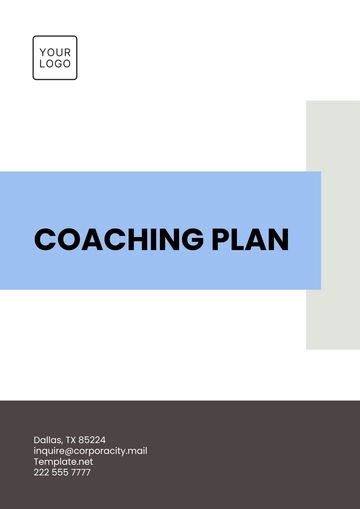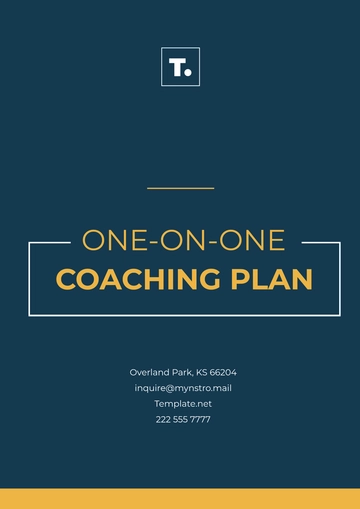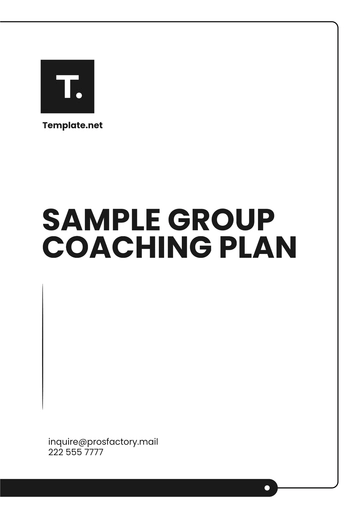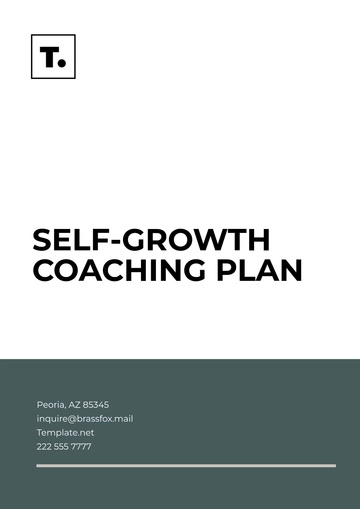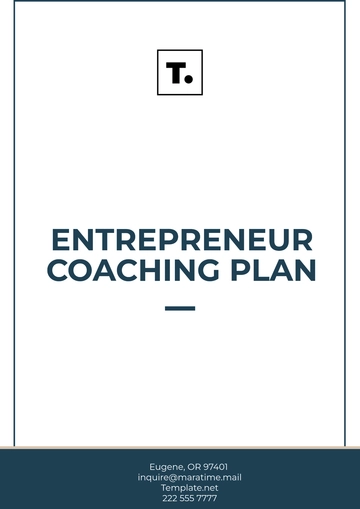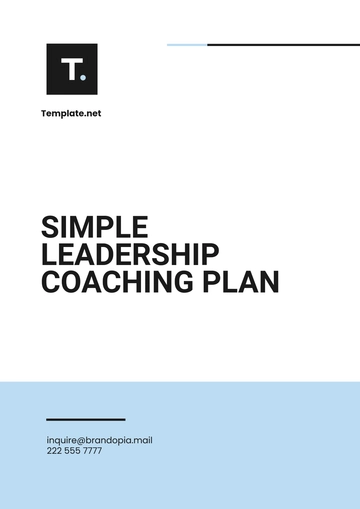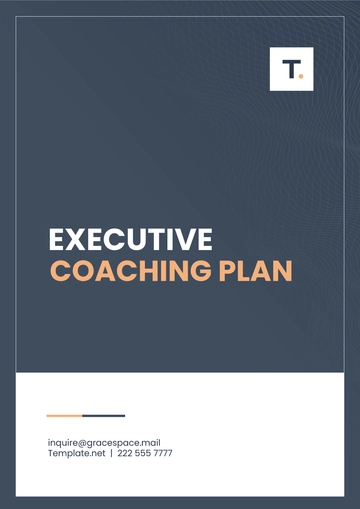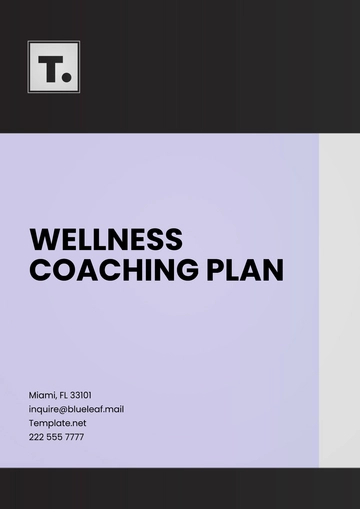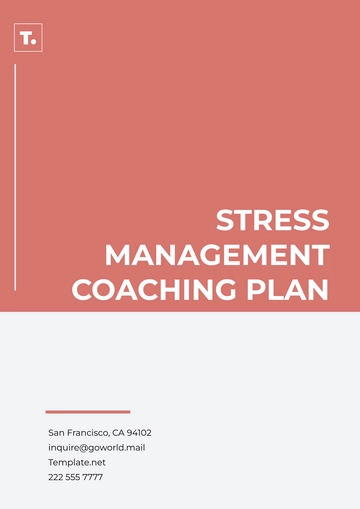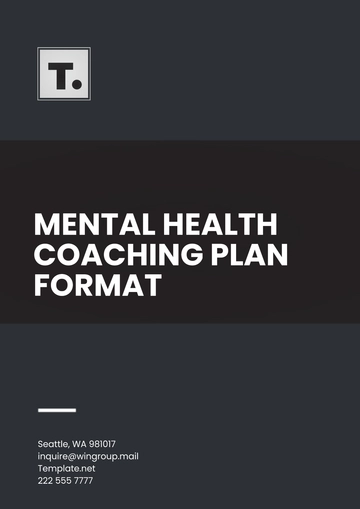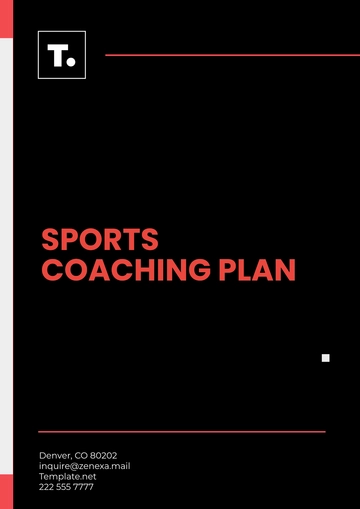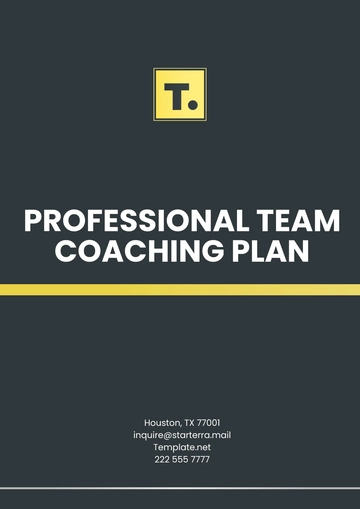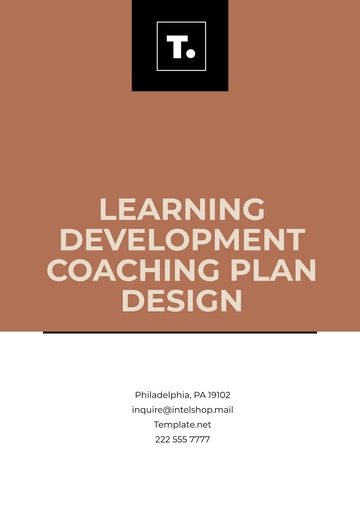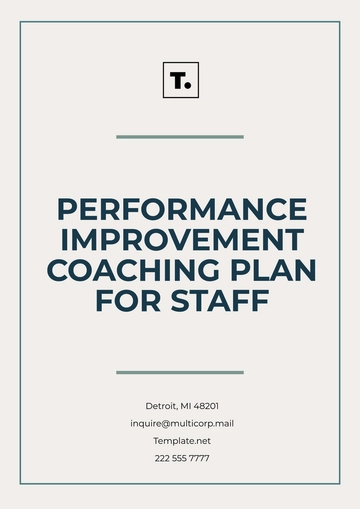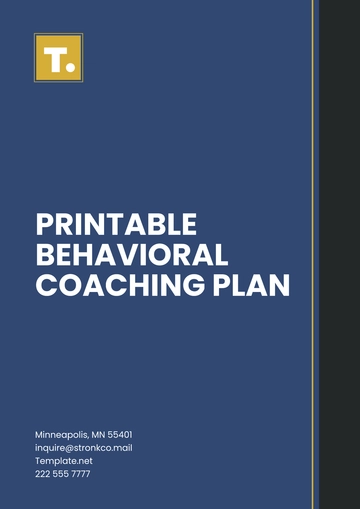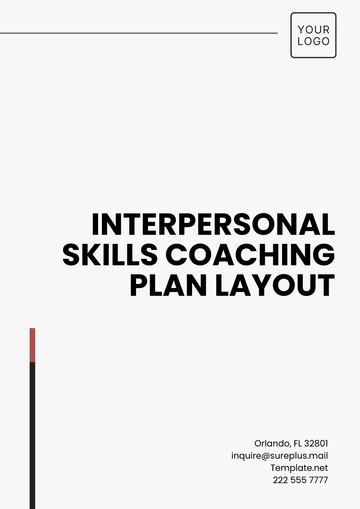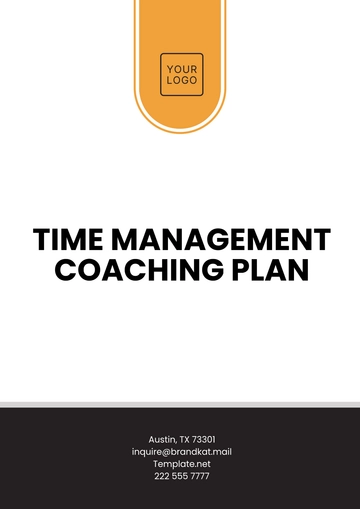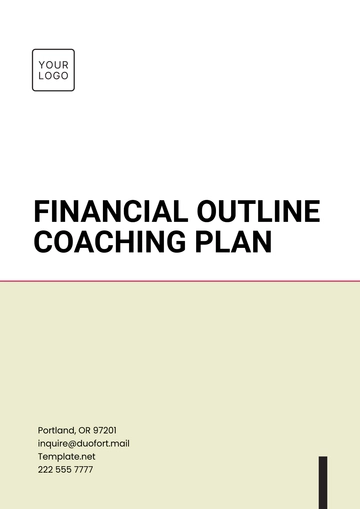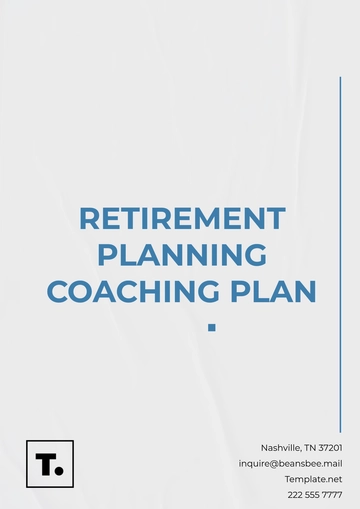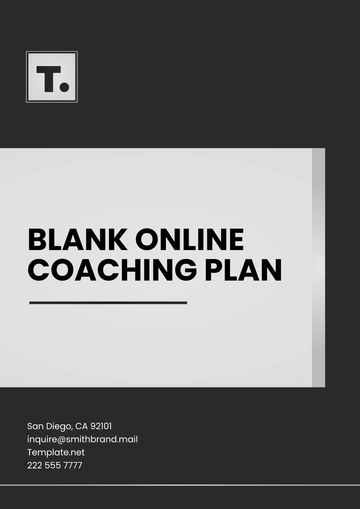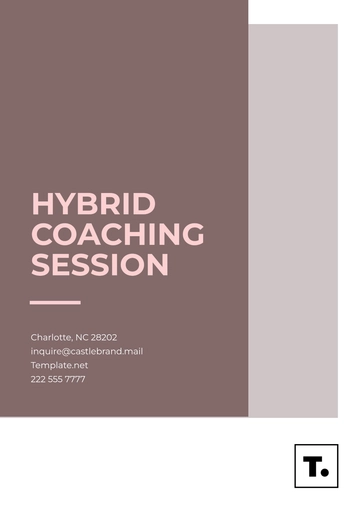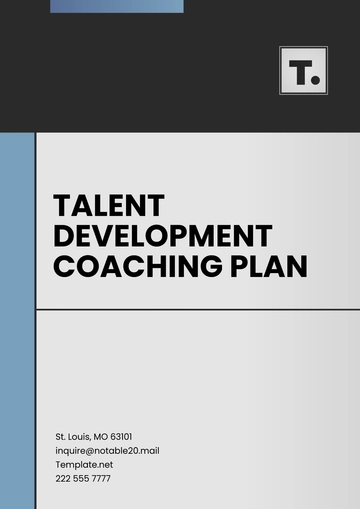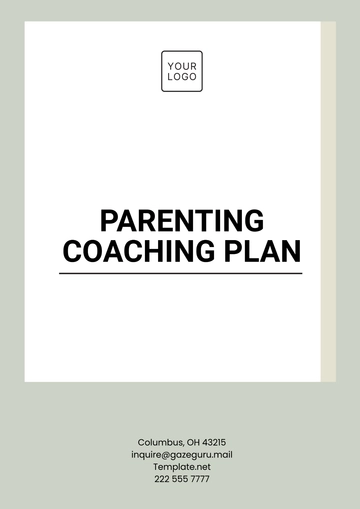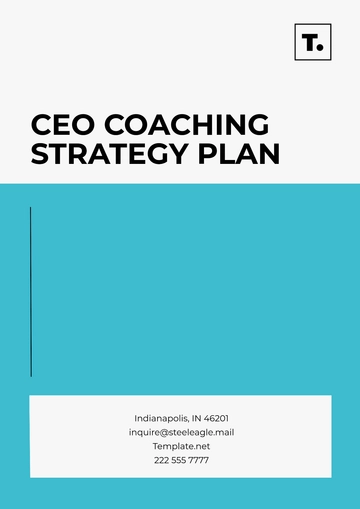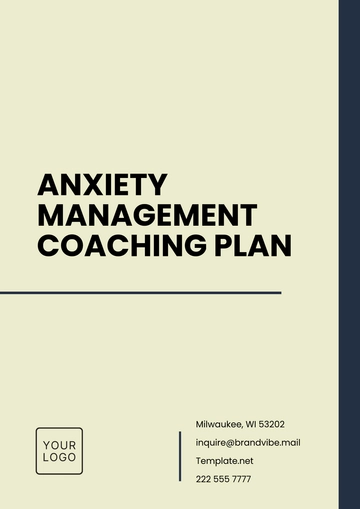Free Sample Group Coaching Plan
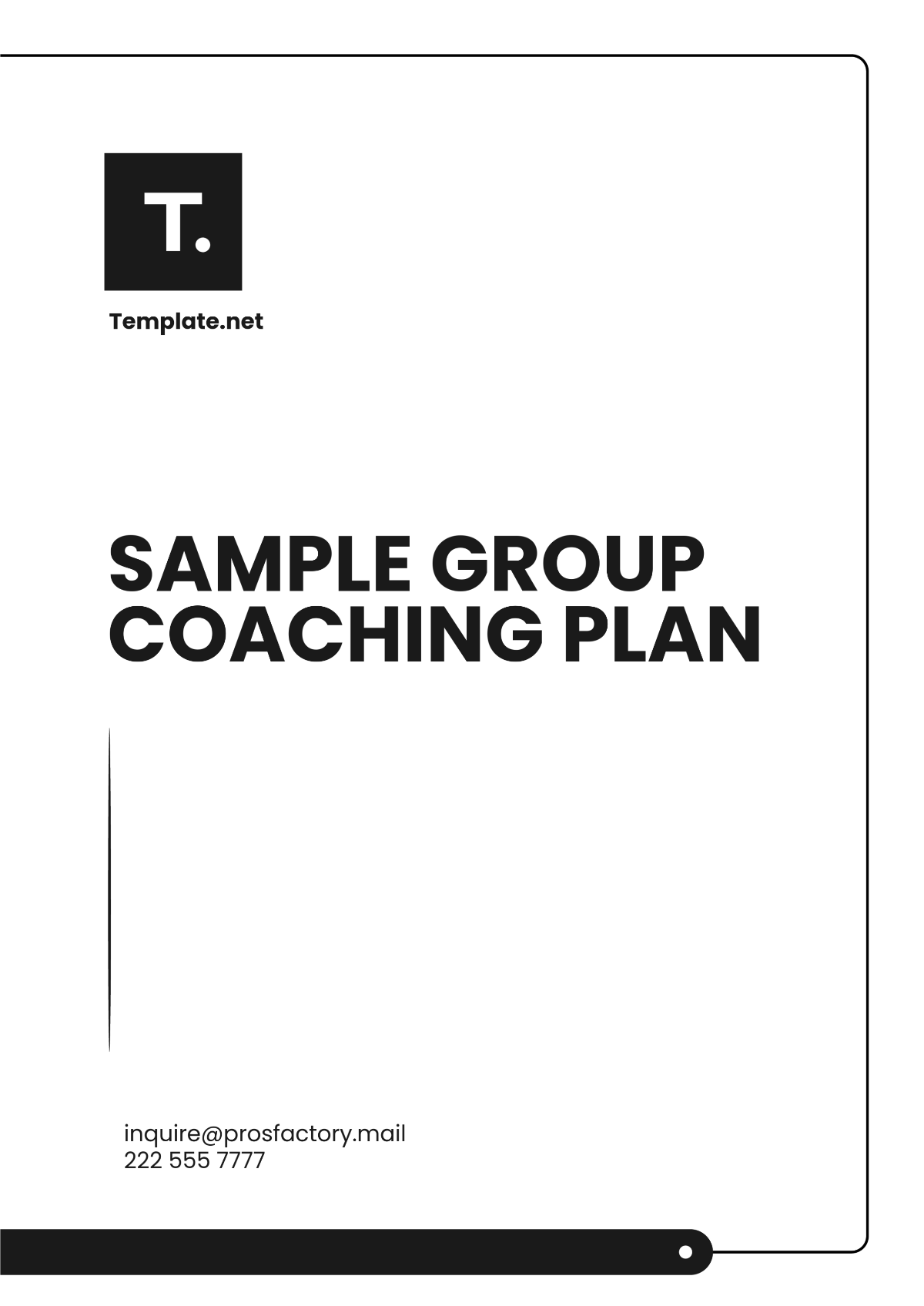
Prepared by: [Your Name]
Date: [Date]
I. Overview and Objectives
A. Purpose
To enhance team communication and collaboration through a structured group coaching program.
B. Goals
Improve interpersonal communication skills.
Foster a collaborative team environment.
Identify and leverage individual strengths for collective success.
C. Expected Outcomes
Participants will demonstrate effective communication strategies.
Increased team cohesion and mutual respect.
Clear action plans for ongoing team improvement.
II. Participant Details
A. Group Composition
Number of Participants: 8–10
Roles: Mid-level managers from the marketing and sales departments.
Primary Needs: Enhanced communication, conflict resolution, and strategic collaboration.
B. Participant Background
Participants have varying levels of experience in team-based roles.
Identified challenges include communication barriers and siloed workflows.
III. Session Schedule
A. Timeline
Duration: 6 weeks
Frequency: Weekly sessions (1.5 hours each)
B. Session Plan
Week | Topic | Description |
|---|---|---|
Week 1 | Introduction and Goal Setting | Establish group norms, set expectations, and define coaching objectives. |
Week 2 | Communication Fundamentals | Explore active listening, nonverbal communication, and effective dialogue techniques. |
Week 3 | Conflict Resolution Strategies | Practice resolving conflicts through role-play and collaborative approaches. |
Week 4 | Building Trust Within the Team | Engage in trust-building activities and exercises to enhance team cohesion. |
Week 5 | Collaborative Problem-Solving Exercises | Participate in group brainstorming and problem-solving scenarios. |
Week 6 | Recap, Feedback, and Future Planning | Reflect on lessons learned, gather feedback, and create actionable plans for the future. |
IV. Topics and Activities
A. Session Topics
Week | Session Topic |
|---|---|
Week 1 | Establishing group norms and understanding coaching objectives |
Week 2 | Practicing active listening and nonverbal communication |
Week 3 | Role-playing conflict resolution scenarios |
Week 4 | Participating in trust-building activities (e.g., “Trust Ladder” exercise) |
Week 5 | Group brainstorming and problem-solving sessions |
Week 6 | Reflection and creating individual/team action plans |
B. Activities
Icebreakers to foster initial group connection.
Interactive discussions to share experiences and insights.
Hands-on exercises to practice new skills in real time.
V. Materials and Resources
A. Required Materials
Worksheets: Communication styles assessment, team-building exercises.
Presentation slides for key concepts.
B. Additional Resources
Recommended reading: Crucial Conversations by Patterson, Grenny, McMillan, and Switzler.
Access to online collaboration tools for follow-up activities.
VI. Evaluation and Feedback
A. Progress Tracking
Weekly reflections: Participants share their key takeaways and challenges.
Mid-program check-in to adjust activities based on participant feedback.
B. Feedback Collection
Post-program survey to measure satisfaction and effectiveness.
Individual and group evaluations to identify areas of improvement.
VII. Coach’s Notes
A. Preparation Tips
Review participant profiles to tailor examples and activities.
Establish a supportive and open environment from the first session.
B. Facilitation Notes
Encourage active participation by rotating leadership roles during activities.
Be adaptable to the group’s energy and dynamics while keeping the sessions on track.
- 100% Customizable, free editor
- Access 1 Million+ Templates, photo’s & graphics
- Download or share as a template
- Click and replace photos, graphics, text, backgrounds
- Resize, crop, AI write & more
- Access advanced editor
Create seamless group coaching experiences with the Sample Group Coaching Plan Template from Template.net. This editable and customizable template is perfect for coaches who work with multiple clients at once. You can easily modify the sections to meet your group's specific needs. Plus, with our Ai Editor Tool, you can make real-time edits and adjustments. Streamline your sessions, promote effective group dynamics, and ensure measurable outcomes with this versatile coaching plan template.
You may also like
- Finance Plan
- Construction Plan
- Sales Plan
- Development Plan
- Career Plan
- Budget Plan
- HR Plan
- Education Plan
- Transition Plan
- Work Plan
- Training Plan
- Communication Plan
- Operation Plan
- Health And Safety Plan
- Strategy Plan
- Professional Development Plan
- Advertising Plan
- Risk Management Plan
- Restaurant Plan
- School Plan
- Nursing Home Patient Care Plan
- Nursing Care Plan
- Plan Event
- Startup Plan
- Social Media Plan
- Staffing Plan
- Annual Plan
- Content Plan
- Payment Plan
- Implementation Plan
- Hotel Plan
- Workout Plan
- Accounting Plan
- Campaign Plan
- Essay Plan
- 30 60 90 Day Plan
- Research Plan
- Recruitment Plan
- 90 Day Plan
- Quarterly Plan
- Emergency Plan
- 5 Year Plan
- Gym Plan
- Personal Plan
- IT and Software Plan
- Treatment Plan
- Real Estate Plan
- Law Firm Plan
- Healthcare Plan
- Improvement Plan
- Media Plan
- 5 Year Business Plan
- Learning Plan
- Marketing Campaign Plan
- Travel Agency Plan
- Cleaning Services Plan
- Interior Design Plan
- Performance Plan
- PR Plan
- Birth Plan
- Life Plan
- SEO Plan
- Disaster Recovery Plan
- Continuity Plan
- Launch Plan
- Legal Plan
- Behavior Plan
- Performance Improvement Plan
- Salon Plan
- Security Plan
- Security Management Plan
- Employee Development Plan
- Quality Plan
- Service Improvement Plan
- Growth Plan
- Incident Response Plan
- Basketball Plan
- Emergency Action Plan
- Product Launch Plan
- Spa Plan
- Employee Training Plan
- Data Analysis Plan
- Employee Action Plan
- Territory Plan
- Audit Plan
- Classroom Plan
- Activity Plan
- Parenting Plan
- Care Plan
- Project Execution Plan
- Exercise Plan
- Internship Plan
- Software Development Plan
- Continuous Improvement Plan
- Leave Plan
- 90 Day Sales Plan
- Advertising Agency Plan
- Employee Transition Plan
- Smart Action Plan
- Workplace Safety Plan
- Behavior Change Plan
- Contingency Plan
- Continuity of Operations Plan
- Health Plan
- Quality Control Plan
- Self Plan
- Sports Development Plan
- Change Management Plan
- Ecommerce Plan
- Personal Financial Plan
- Process Improvement Plan
- 30-60-90 Day Sales Plan
- Crisis Management Plan
- Engagement Plan
- Execution Plan
- Pandemic Plan
- Quality Assurance Plan
- Service Continuity Plan
- Agile Project Plan
- Fundraising Plan
- Job Transition Plan
- Asset Maintenance Plan
- Maintenance Plan
- Software Test Plan
- Staff Training and Development Plan
- 3 Year Plan
- Brand Activation Plan
- Release Plan
- Resource Plan
- Risk Mitigation Plan
- Teacher Plan
- 30 60 90 Day Plan for New Manager
- Food Safety Plan
- Food Truck Plan
- Hiring Plan
- Quality Management Plan
- Wellness Plan
- Behavior Intervention Plan
- Bonus Plan
- Investment Plan
- Maternity Leave Plan
- Pandemic Response Plan
- Succession Planning
- Coaching Plan
- Configuration Management Plan
- Remote Work Plan
- Self Care Plan
- Teaching Plan
- 100-Day Plan
- HACCP Plan
- Student Plan
- Sustainability Plan
- 30 60 90 Day Plan for Interview
- Access Plan
- Site Specific Safety Plan
